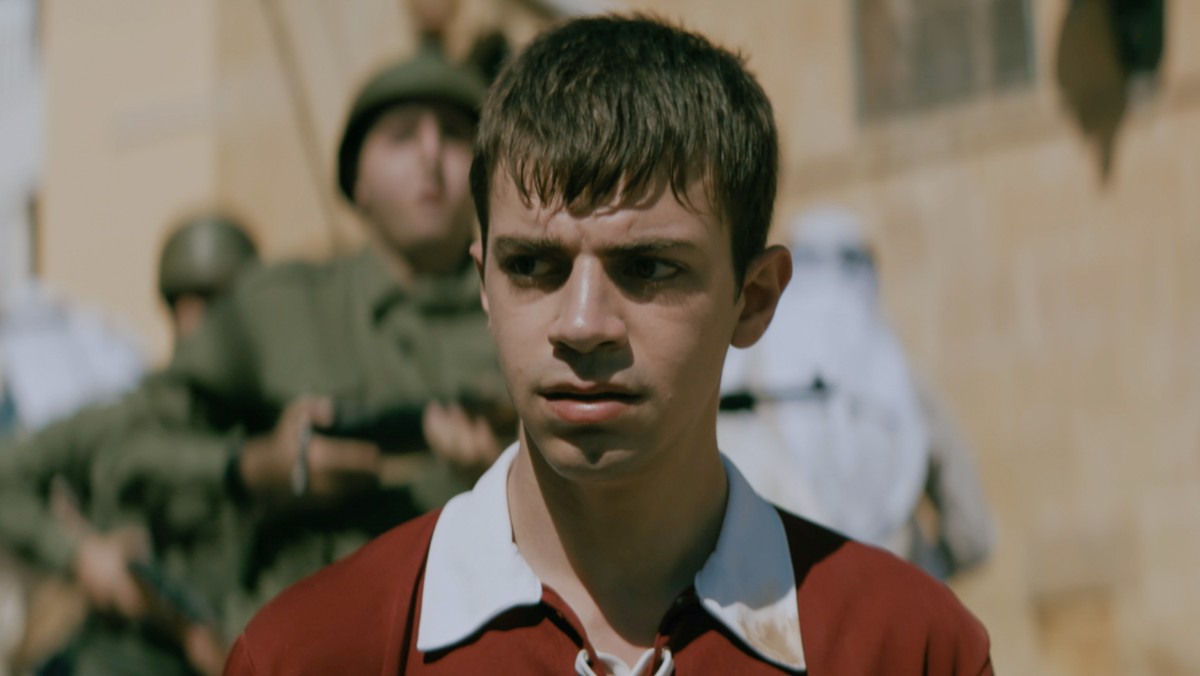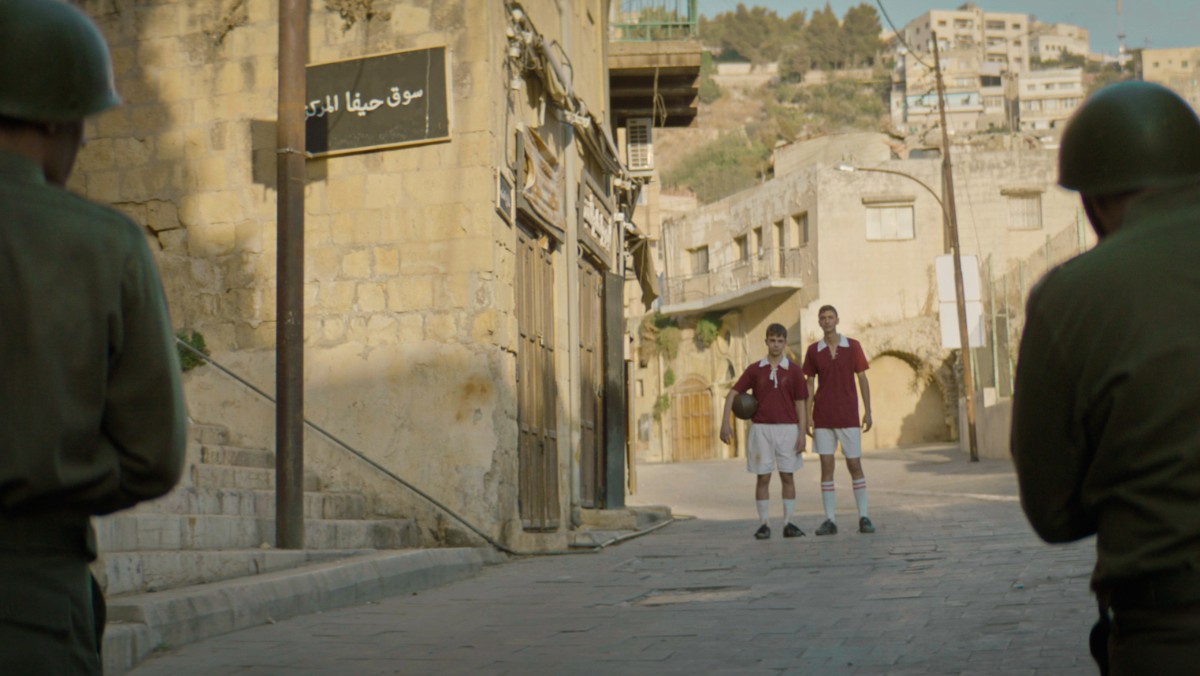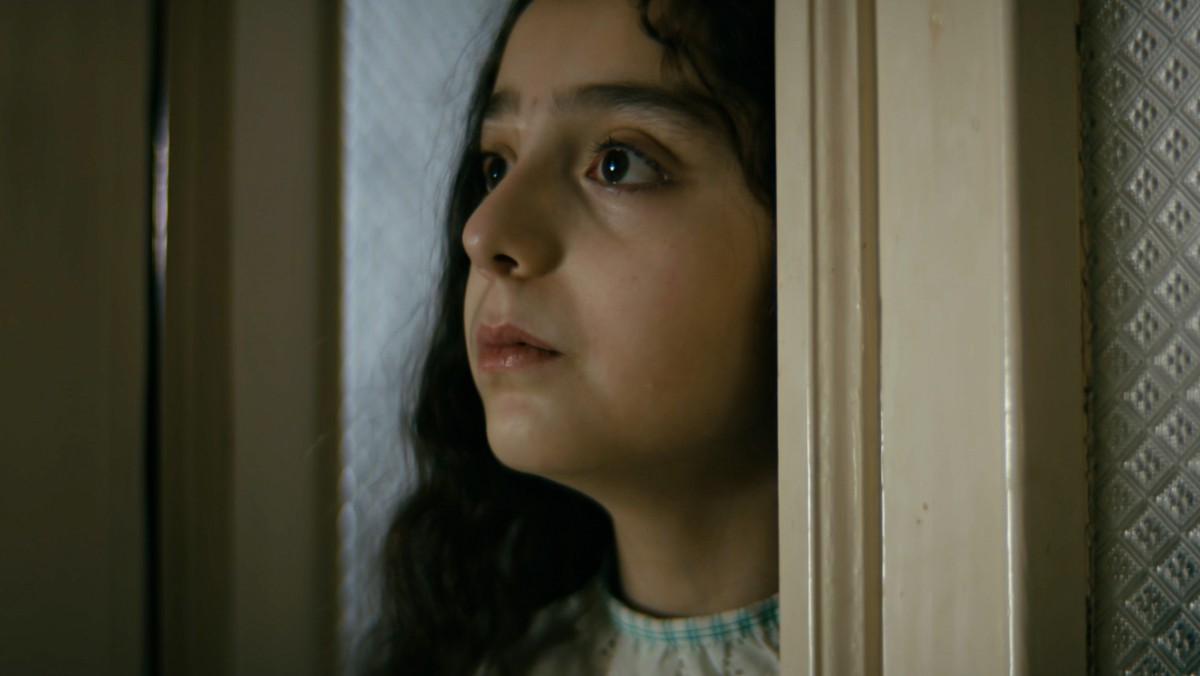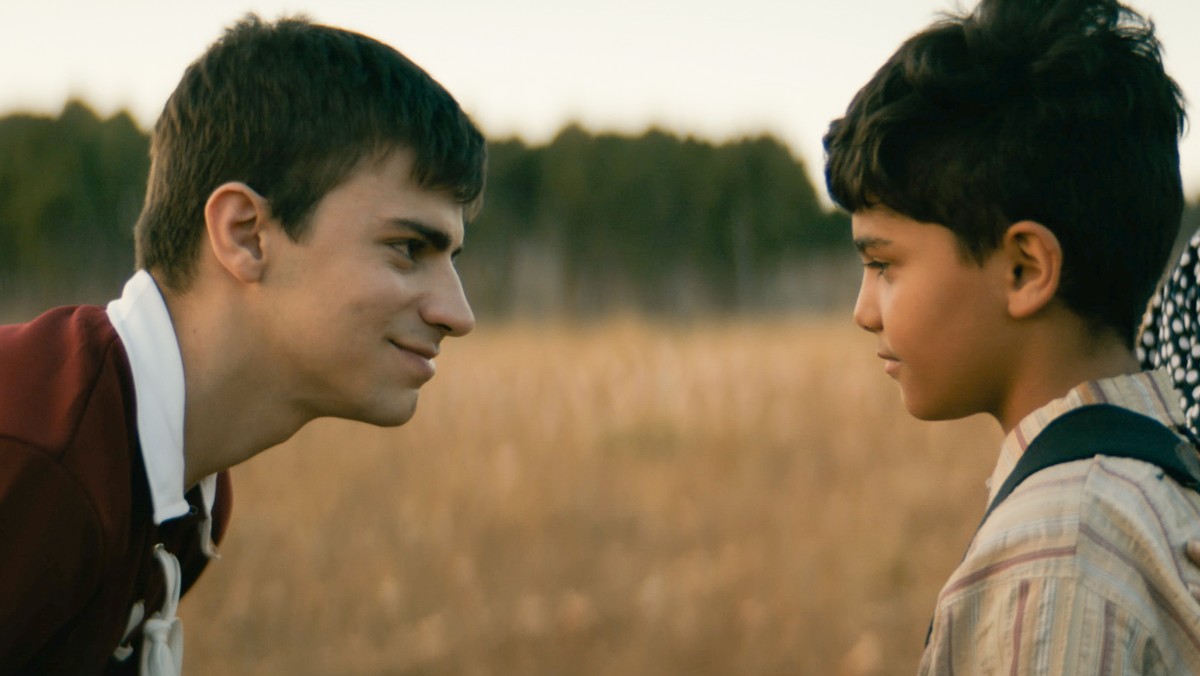
Mohammed Saffouri is a Palestinian American filmmaker based in the Washington D.C. area. He graduated from George Mason University in 2020 with a bachelor’s degree in Film and Video Studies with a concentration in film directing. His academic journey started by studying computer science (an associate degree), but he changed his major to filmmaking in his 3rd year at college.
Mohammed wanted to become a filmmaker because of the lack of representation or misrepresentation of his community. “I want to change that and bring to the table the correct narrative,” says Mohammed. He likes storytelling that is based on people’s true stories. “I think we have a lot of good stories to tell other people or audiences about and introduce the wider world to them,” he says.
indieactivity: Are you only directing your own projects, or you’re open for hire?
Mohammed Saffouri (MS): Currently, I’m only directing my own projects, but that’s not because I don’t want to direct other people’s work, it’s just because I wasn’t offered to direct for hire. I’m open to directing other people’s work if it’s a story that I believe in and positively influences people.

Do you hire a casting director, or do you like to choose the cast yourself? If so, what criteria go into your casting?
Mohammed Saffouri (MS): Both. I would like to see the actors’ performances myself. Sometimes a director has a specific feature that they are looking for that can be difficult to explain to the casting director. However, casting directors are important, especially in finding supporting roles. In my film, our casting director, Mona Shehabi, recommended some actors to pick the lead actor that I ended up auditioning. The casting director recommended some of the supporting roles such as the actors who played Ahmed’s mom and dad.
What went into the casting process for “Touchline”?
Mohammed Saffouri (MS): We had two main auditions. The reason why we had two auditions was that we couldn’t find the lead actor in the first one. I was looking for specific characteristics in the lead actor. I was looking for someone who was short, looked like he was in his teenage years, and could play football whilst also having a bit of an acting background. It was hard to find all of these characteristics in one person in a small city and new to the film industry such as Amman, Jordan. Thankfully, in the second auditions, we found Basil Askar, who matched all the features I was looking for.
Without giving anything away, tell us a little bit about the script, how did you come up with the idea?
Mohammed Saffouri (MS): In America, people don’t really know the situation in Palestine, and what happened to the Palestinian people after the Israeli occupation of Palestine in 1948. Therefore, I wanted to introduce the people to the situation in Palestine, where I’m originally from. And I couldn’t find a better story than the story of my own grandfather who lived this war and witnessed the oppression and was kicked out of his own hometown giving up his land, home, friends, and most importantly, his dream to play soccer for the Palestinian National team.

I heard this story directly from my grandfather when I was younger. Also, my dad recorded an interview with my grandfather, Ahmed, who narrated the story in that recording. Everything used in this film is factually correct according to my grandfather’s story which my father recorded for my grandfather on a cassette back in 2002. The conversation between my father and my grandfather was the main source for writing the script.
There was also a book which was written by a Palestinian author who moved from Palestine to Kuwait after the occupation which is what also happened to my grandfather as he went from Palestine to Lebanon and then from Lebanon to Kuwait. The book was called The Story Of My Life In Palestine and Kuwait by Khairy Abul Jebain.
Who is the “Touchline” for? Who do you think would enjoy it the most?
Mohammed Saffouri (MS): It’s for everyone, but mainly for the western audience. Especially those who don’t know the origin of the situation in Palestine. Touchline is for them and educates them about what is happening to the Palestinian people from 1948 until today.
When did you form your production company – and how did that come to life?
MS: I formed Sirius Productions in March 2020 as I was working on the pre-production of Touchline. I had no idea how LLCs work, but I had to learn quickly to make the film. Now my production company is still functioning and all of my new projects are produced by it.

How long did it take to shoot the entire film?
MS: Shooting took us only three days, but most of the film time was in developing the film and pre-production preparing for the shooting.
How long was the post-production process?
MS: Post-production was 5 months long. The film post-production team was all over the world. Our editor was in Qatar, our sound editor was in Jordan, the colorist was in Eygpt, the music composer was in LA, and I was directing everything from Washington, D.C.
What are your goals with Touchline?
MS: Touchline’s goal is to raise awareness about the Palestinian crisis and tell the west the Palestinian narrative and educate them about the Palestinian Nakba.
What’s next for you? What are you working on right now?
MS: I’m working on my first narrative film right now. I’m still developing the story and writing the script. It talks about the mix of identities. It’s also inspired by a true story that happened to one of my family members.
What would you recommend to a new director at the beginning of his/ her journey? Any special courses, workshops, or helpful books they can read?
MS: Say yes to every opportunity that will put you on a film set. You learn a lot from every filming set you go to. You learn how each team works, the styles of different directors, and how to communicate and lead a film set. Be patient and take your time learning.
Who is your favorite director? Why?
MS: There are many great film directors, but one of my favorites is Jordan Peele because he focuses on telling stories of minorities and educates people about his own communities issues. I also have to say, my mentor and professor, director, and screenwriter Nikyatu Jusu are one of my favorite directors, as I learn a lot from her and she also focuses her storytelling skills on highlighting underrepresented communities.
What advice would you give directors around the world?
MS: Tell stories of other people. Tell stories based on people’s reality. When you make a project about other people, make sure you include filmmakers in your team from the communities you are representing.
Tell us what you think of the interview with Mohammed Saffouri. What do you think of it? What ideas did you get? Do you have any suggestions? Or did it help you? Let’s have your comments below and/or on Facebook or Twitter.
Follow Mohammed Saffouri on Social Media
Website
IMDb
Facebook
LinkedIn
Instagram
In Camera by Naqqash Khlalid Launch on VOD April 29
Naqqash Khlalid’s Directs Nabhan Rizwan. In Camera stars an EE BAFTA Rising Star Award Nominee.
2025 Philip K. Dick Sci-Fi Film Festival Award Winners Announced
Vanessa Ly’s Memories of the Future Awarded Best PKD Feature
Dreaming of You by Jack McCafferty Debuts VOD & DVD for April Release
Freestyle Acquires “Dreaming of You” for April 15th Release
Hello Stranger by Paul Raschid set for London Games Festival & BIFFF
The film Is set for an April 10th Premiere at The Genesis Cinema in London (LGF) and BIFFF
Daydreamers Official Trailer by Timothy Linh Bui: Released by Dark Star Pictures
Daydreamers Vietnamese Vampire Thriller – May 2nd release
Afternooner by The Harrow Brothers: Funniest Movie of the Decade on VOD & DVD April
Freestyle Acquires “Afternooner” for April Release









